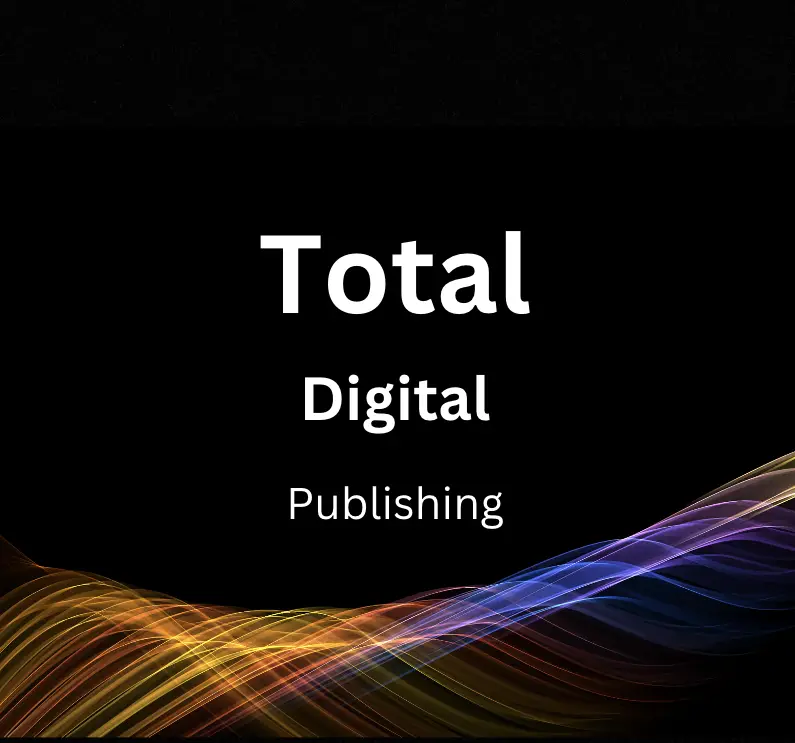In today’s digital landscape, staying visible and relevant on the web is becoming increasingly crucial for organizations and individuals alike. As search engines continue to refine their algorithms to deliver the best possible results, understanding and leveraging metadata for ranking purposes has grown in importance. This essay delves into the world of metadata, dissecting its various types and roles, as well as its significance in Search Engine Optimization (SEO), rich snippets, structured data, and best practices to ensure your website achieves optimal visibility and ranks higher in search engine results.
Understanding Metadata
What is Metadata?
Metadata is essentially data about data. It provides contextual information about a specific piece of content or a data resource, explaining what it is, where it came from, and how it should be used or maintained. In the context of the web, metadata resides in the HTML code of web pages and is used to describe various aspects of digital content, such as its title, author, description, keywords, and more. Metadata is crucial in improving the accessibility, usability, and organization of online content, as well as helping search engines understand, index, and rank web pages.
Types of Metadata
There are three primary types of metadata: descriptive, structural, and administrative metadata. Each of these types serves a unique purpose and plays a vital role in enabling search engines to effectively process and rank digital content.
Descriptive Metadata
Descriptive metadata provides information that helps users and search engines discover and identify digital content. This type of metadata typically includes elements such as title, author, keywords, and description. It enables search engines to understand what a web page is about, which, in turn, allows them to accurately index and rank the content based on its relevance to user queries.
For example, when a user performs a search on Google, the engine scans the metadata of billions of web pages to determine how closely they match the query. Pages with relevant metadata that closely align with the search terms are more likely to appear higher in search results, enhancing the user’s experience and the content’s visibility.
Structural Metadata
Structural metadata is responsible for providing information about the organization or structure of a digital resource. It shows how the various components of a resource relate to each other and provides guidelines for navigation and presentation. For example, structural metadata can define how the chapters of an electronic book are organized or how images within a gallery are displayed.
Search engines use structural metadata to better comprehend the layout of a web page and its internal organization. This information helps them identify whether a page offers a good user experience and how the content should be displayed in search results.
Administrative Metadata
Administrative metadata relates to the management and maintenance of digital resources, such as information about file formats, storage, ownership, and rights management. This type of metadata is crucial for users, as it helps them understand how a resource may be used, stored, and preserved over time.
While administrative metadata may not directly impact search engine rankings, it assists search engines in recognizing the legitimacy and authority of a web page. For example, having appropriate licensing and rights metadata may signal to search engines that your content is authentic, high-quality, and deserving of a higher ranking.
Role of Metadata in Ranking
Metadata is essential in helping search engines comprehend, index, and rank web content. By providing detailed and accurate metadata, you can enhance the visibility of your content, increasing the likelihood of appearing higher in search results. Well-structured and accurate metadata contributes to an improved user experience, as search engines can more effectively present relevant content to users.
Furthermore, search engines frequently use metadata as a factor in determining a web page’s quality and relevance. For instance, Google’s algorithms analyze metadata elements, such as title tags and meta descriptions, to assess the content’s relevancy to a user’s search query. As a result, it is vital for website owners and content creators to optimize their metadata to effectively improve their pages’ search engine rankings.
Ultimately, metadata serves as a framework for search engines to efficiently understand and categorize digital content. By providing descriptive, structural, and administrative metadata that is accurate, relevant, and well-structured, you can significantly improve your content’s visibility, discoverability, and overall search engine performance.

Metadata Elements and SEO
Metadata Elements and Their Importance in SEO
Metadata elements play a crucial role in search engine optimization (SEO) because they assist search engines in understanding the content on a web page, which enables correct indexing of that page. Proper use of metadata elements, such as title tags, meta descriptions, and header tags, can considerably impact a website’s visibility and ranking on search engine results pages (SERPs). In essence, the more effectively and efficiently you utilize metadata on your website, the higher your chances of achieving better search engine rankings.
Title Tags
Title tags define the title of a web page and are displayed as clickable headlines on SERPs. A well-written title tag that accurately reflects the content of the page can make it more appealing to search engine users, which in turn, leads to higher click-through rates (CTR). Title tags should be unique and include relevant keywords to ensure optimal SEO performance.
Search engines typically truncate title tags that exceed 60-70 characters in length, so it is essential to create a clear and concise tag while still incorporating essential keywords. An informative title tag helps search engines to correctly determine the relevance of your web page for specific search queries, ultimately improving your visibility and ranking.
Meta Descriptions
Meta descriptions provide a summary of a web page’s content and are displayed below the title tag in search engine results. While they do not directly influence rankings, well-written meta descriptions improve the CTR on search results and lead to higher organic traffic for your website. High CTRs can indirectly affect your page rank, as search engines may interpret an increase in traffic as an indicator of valuable content.
To optimize your meta descriptions, they should be between 150 to 160 characters long, including relevant keywords and a compelling call-to-action. It is also essential to create unique meta descriptions for every page on your website to provide a precise and compelling summary for different search queries.
Header Tags
Header tags (H1, H2, H3, etc.) are essential in SEO because they serve as a hierarchical structure for the content on a web page. These tags help define headings and subheadings, making it easier for search engines to understand the main topics and subtopics discussed on the page. Proper use of header tags is vital in guiding search engines to identify and index your content accordingly.
Including relevant keywords in header tags can also signal to search engines the relevance of your content for specific search queries. While the H1 tag is most crucial for SEO and should represent the main topic of the page, it is recommended to use other header tags (such as H2 or H3) to subdivide your content into easily digestible sections. This practice not only helps improve your page’s SEO but also enhances the overall user experience.
Introduction to Metadata and Its Role in Ranking
In the digital landscape today, metadata elements such as title tags, meta descriptions, and header tags play an essential role in your website’s search engine optimization (SEO) performance. By optimizing these elements, you can significantly enhance your website’s visibility and ranking in search engine results pages. Not only do these metadata components help search engines comprehend and index your content, but they also contribute to improving the user experience by providing concise and relevant information about your web pages. As the digital arena continues to evolve, mastering these metadata elements becomes increasingly important to remain competitive in search engine results.

Rich Snippets and Structured Data
Diving Deeper: Rich Snippets and Structured Data
Building on the foundation of metadata optimization, rich snippets and structured data are web page elements that further improve how search engines like Google display your content in search results. A rich snippet is an enhanced summary of the information on a web page, featuring more than just the URL and the page title. It may incorporate images, ratings, publication date, author, and other details, rendering it far more visually appealing and informative than a standard snippet. By offering these additional elements, rich snippets make your website stand out in search listings, potentially improving click-through rates and search ranking.
Structured data, in contrast, is a uniform and organized format for providing information about a web page, enabling search engines to gain a deeper understanding of the content on your site. For instance, by utilizing structured data, you can inform search engines that an article was penned by a specific author, or that a particular review has an associated star rating. Implementing rich snippets and structured data in conjunction with metadata optimization can lead to a more dynamic and efficient online presence that appeals to both search engines and users alike.
The Role of Schema Markup
To create rich snippets and structured data for your website, you need to use schema markup. Schema is a semantic vocabulary of tags and microdata that you can add to your website’s HTML code, helping search engines understand the content and context of your web pages. It is a collaborative project created by Google, Bing, Yahoo, and Yandex, making it universally supported by search engines.
Schema markup allows you to categorize your content by using tags that define elements such as location, people, events, products, and more. By using schema markup, you can provide search engines with context to the content on your web pages – enabling them to accurately display that content as rich snippets in search results.
Unlocking the Potential of Metadata for Website Ranking
Metadata, which refers to data that provides information about other data, plays a crucial role in search engine optimization (SEO) and website ranking. By incorporating rich snippets and structured data into your website’s metadata, you can enhance your site’s search result appearance, improve its overall online presence, and ultimately drive higher quality traffic. This not only benefits search engines like Google as they index and rank your web pages, but it also enriches the user experience by providing relevant information about your content. In this article, we will explore the benefits of implementing rich snippets and structured data and how it can lead to a mutually improved experience for search engines and users alike.
-
Improved search result appearance: Rich snippets give search results a more polished and informative look, which can increase the likelihood of users clicking on your site, leading to higher click-through rates.
-
Better search engine understanding: Structured data makes it easier for search engines to index and understand your website’s content. This can help improve your search engine ranking, making your site more visible to users.
-
Enhanced user experience: Rich snippets provide users with relevant information about your content, which can help them make better-informed decisions about clicking through to your site.
-
Increased credibility: Websites that utilize rich snippets and structured data often appear more trustworthy and professional, which can help build user trust and increase the likelihood of users clicking through to your site.
-
Enhanced local SEO: By implementing schema markup for your local business information, you can increase the chance of appearing in local search results and Google Maps listings.

Metadata Best Practices
Best Practices for Metadata Usage
To reap the full benefits of metadata in SEO and website ranking, it is important to adhere to best practices in implementing and maintaining metadata elements. This includes aspects such as titles and descriptions, keywords, avoiding keyword stuffing, and ensuring consistency across your website. By doing so, you can provide search engines with the necessary context and information about your content, which can, in turn, lead to better indexing, ranking, and visibility for your website. As a result, both search engines and website users can enjoy a smoother and more informative experience, contributing to the overall success of your online presence.
Creating Unique and Concise Titles and Descriptions
Title tags and meta descriptions are crucial metadata elements that should be optimized for better search engine visibility. Title tags are the clickable headlines displayed on SERPs and should be unique, concise, and accurately reflect the content of the web page. It’s essential to include relevant keywords within the 50-60 character limit, as this helps search engines identify the page’s relevance to user queries.
Meta descriptions provide a brief summary of the page’s content and should be informative, engaging, and within the 160 character limit. While meta descriptions do not directly affect the website’s ranking, they influence click-through rates, making it essential to create compelling and unique descriptions for each web page.
Using Relevant Keywords
Keyword usage is vital to ensuring that search engines can understand your website’s content and relevance to specific queries. To optimize your metadata for keywords, it’s critical to perform keyword research to identify high-quality keywords relevant to your content. Incorporate these keywords strategically in your metadata, focusing on title tags and meta descriptions, without sacrificing readability or relevance.
Avoiding Keyword Stuffing
While using relevant keywords is crucial, it’s essential to avoid overusing or “stuffing” them into your metadata. Keyword stuffing not only leads to a poor user experience but can also result in search engine penalties that negatively affect your website’s ranking. It’s important to maintain a balance between including essential keywords and ensuring that your metadata remains natural and user-friendly.
Ensuring Consistency and Accuracy of Information
Another significant aspect of metadata best practices is ensuring that the information provided in your metadata is consistent and accurate across all web pages. Consistency helps establish your website’s credibility and professionalism, improving user experience and customer trust. Additionally, providing accurate information makes it easier for search engine crawlers to index your website effectively, improving your chances of ranking higher on SERPs.
Summary
In summary, utilizing metadata best practices, which include crafting unique and succinct titles and descriptions, implementing relevant keywords, steering clear of keyword stuffing, and ensuring consistency and accuracy of information across web pages can substantially enhance a website’s search engine visibility and overall user experience. By optimizing metadata, website owners can effectively increase their SERP rankings, attracting higher quality traffic and potential customers to their site.

The Future of Metadata and Ranking
The Evolution of Metadata and Its Growing Importance in SEO
Metadata has been essential in search engine optimization (SEO) and ranking for a long time. With the rapid expansion of online content, search engines like Google increasingly depend on metadata to effectively index and rank web pages. Metadata functions as a contextual guide for search engines, allowing them to efficiently categorize and assess the relevancy of a page’s content for specific search queries. As SEO practices and emerging technologies continue to evolve and become more sophisticated, the significance of metadata in website ranking is anticipated to grow even more in the coming years.
The Impact of Artificial Intelligence on Metadata
Artificial intelligence (AI) has made significant advancements in recent years and is poised to revolutionize various aspects of digital marketing, including SEO. AI-powered search engine algorithms are capable of efficiently analyzing large volumes of metadata to generate more relevant and personalized search results for users. As AI continues to mature, the role of metadata in website ranking is expected to expand further, with search engines able to parse more granular and semantically nuanced information from metadata elements. This will enable search engines to better understand the context and relevance of web content, thereby placing greater importance on high-quality and well-structured metadata as a key component of effective SEO strategies.
Voice Search and the Growing Importance of Local Metadata
With the increasing adoption of voice-activated technology like Amazon Alexa, Google Assistant, and Apple Siri, voice search has emerged as a major trend in the digital landscape. As users turn to voice search for queries, often with local intent (“nearest pizza place,” “grocery store near me”), the role of metadata in website ranking takes on an additional layer of importance.
Local metadata, which includes elements like business names, addresses, phone numbers, and geo-coordinates, is essential for ensuring that search engines can accurately identify and rank content relevant to voice search queries with a local intent. As voice search continues to grow in popularity, incorporating local metadata into SEO strategies will become increasingly important for businesses to maintain visibility and compete effectively in the evolving search landscape.
Schema Markup: Enhancing Metadata’s Optimization Potential
Schema markup is an advanced form of metadata that has gained significant traction in recent years as a powerful tool for optimizing website ranking potential. Schema markup, developed by a collaborative initiative between major search engines, is a structured data vocabulary that allows webmasters to add semantic meaning to their content. By incorporating schema markup into web pages, content creators can help search engines better understand the context and meaning of the content, thereby improving its SEO potential and enhancing the quality of search results for users.
As search engines continue to prioritize user experience and relevance in their ranking algorithms, schema markup stands to play an even more significant role in the future of metadata in SEO. By leveraging schema markup, webmasters can ensure that their content remains optimized and visible in the constantly-changing landscape of search engine algorithms.
Conclusion
The role of metadata in website ranking continues to evolve and adapt alongside the rapid advancements in digital technology and the changing behavior of users. As search engine algorithms become increasingly sophisticated with the help of AI, as well as the surge in voice search and local metadata, webmasters and businesses will need to stay up-to-date with the latest developments in metadata optimization and adapt their strategies accordingly. By utilizing advanced tools like schema markup and prioritizing high-quality, well-structured metadata, businesses can effectively maintain their online visibility and adapt to the future of SEO.

As we continue to navigate the ever-evolving digital ecosystem, staying informed and adaptive to the role of metadata in ranking will remain essential. While we explore emerging technologies such as artificial intelligence and voice search, it is critical to understand and harness their potential to shape the future of metadata utilization for website ranking. By implementing best practices and staying abreast of industry developments, it becomes possible to optimize your website’s metadata and thrive in the competitive online space, ensuring your content remains accessible and engaging to your target audience.

